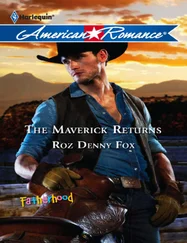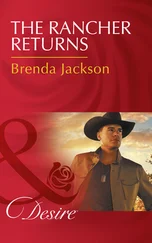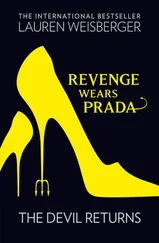Fredo shrugged, then looked down at his loafers. “I tell you what,” he said. “These sure aren’t the right shoes for this slop.”
“Should’ve worn your cowboy boots,” Geraci said.
“What cowboy boots?”
“I thought all you guys out there wore cowboy boots, carried six-shooters, the whole bit. Shoot up cars and little dogs.”
Fredo laughed. He usually took it well when you needled him, further proof what a good guy he really was. How sad using him as a pawn in all this was going to be. “If there were ever two cars that had it coming,” Fredo said, “those were it. Too bad about the dog, though.”
“True it took the head right off?”
Fredo raised his eyes in woe and lamentation. “Clean. I couldn’t have made that shot in a million years if I was trying.”
“We need to get going,” Geraci said, pointing toward the lot where they’d parked. “This is not a thing I’m going to be late to.”
“We’re a lot alike,” Fredo said, “you know that?”
“I’ll take that as a compliment,” Geraci said, looping an arm around him, cuffing him playfully, the way a brother or an old friend would.
They crossed a small wooden bridge across a barely frozen pond.
“You should see this place in the spring,” Geraci said. “Cherry blossoms like you can’t believe, pinker than pink.”
“I probably should.”
“You know,” Geraci said, “I’ve always wanted to ask you something.”
“Anything, my friend.”
“Tell me if I’m out of line for even asking, but what exactly are your responsibilities as sotto capo ? What did Mike tell you they were?”
“Are you serious? What are you talkin’ about? What are you askin’ me here?”
“Because I don’t think it’s clear to anyone. To a lot of people, and here I confess that what I really mean is to me, but I’m not alone, no offense, but it seems mostly symbolic.”
“Symbolic? What the fuck you talking about, symbolic? I got a lot of different things I do. How is it that you don’t understand that there’s a bunch of it I can’t talk about?”
“That, I understand. It’s just that-”
“I imagine that, with Pete gone, I’ll even be going along with Mike to the meeting of the heads of all the Families, in upstate New York there.”
I imagine. Which meant, of course, that he had no idea. It was a shocking and pathetic thing even to be talking about, both because Pete wasn’t even in the ground yet and because this was not the sort of speculation Fredo should be making to anyone but his brother.
“It’s just that a lot of what’s going on with you,” Geraci said, “is awfully public.”
“Come on. Bit parts. Little local TV show. It’s nothin’. No harm in any of it, and maybe some help.”
“I don’t disagree,” Geraci said. “I see the value of it to the organization if the only aim is to get out of any businesses that might be considered crimes, victimless and otherwise. But there are other parts of the business to consider.”
They got back into the car.
“Don’t worry about nothin’,” Fredo said. “Me and Mike, we’ll work out the details.”
What Nick Geraci would like to know is this: If Michael wanted the organization to be more like a corporation, bigger than General Motors, in control of presidents and potentates, then why run it like some two-bit corner grocery store? Corleone amp; Sons. The Brothers Corleone. When Vito Corleone was shot, incapacitated, who took over? Not Tessio, Vito’s smartest and most experienced man. Sonny, who was a violent rockhead. Why? Because he was a Corleone. Fredo was too weak for anything important, yet even then, symbolic or not, Michael made that empty suit his underboss. Hagen was the consigliere even when he supposedly wasn’t, the only non-Italian consigliere in the country. Why? Because Michael grew up in the same house with him. Michael himself had all the ability in the world, but in the end he was the biggest joke of all. Vito, without even consulting his own caporegimes, made Mike the boss -a guy who never earned a red cent for anyone, who never ran a crew, who never proved himself at all except for the night he whacked two guys in a restaurant (every detail of which was arranged by the late, great Pete Clemenza). Only three people ever even got initiated into the Corleone Family without first proving themselves as earners. That would be, yes, the Brothers Corleone.
So now the whole organization was under the control of a guy who’d never done anything but think big thoughts and order people killed. Yes, he was smart, but didn’t anybody besides Sally Tessio, Nick Geraci, and possibly Tom Hagen realize that, as long as Michael thought he was smarter than everybody else, the whole organization was at the mercy of the guy’s ego?
True: Geraci had barely allowed himself to think these things before he learned that Michael Corleone had tried to kill him. Still. That didn’t mean that he was wrong.
Though no one could have known it at the time, Peter Clemenza’s was the last of the great Mafia funerals. The air inside St. Patrick’s Cathedral was almost unbreathably thick with the scent of the tens of thousands of flowers, blanketing the altar and spilling down the aisles, signed less cryptically than any such flowers would ever be again. In the pews, for the last time, were dozens of unself-conscious judges, businessmen, and politicians. To this day, singers and other entertainers show up at such funerals, but never in the numbers in evidence for Clemenza. Anyone in the know-and for now there were still very few such people-could have scanned the scores of mourners and put together a pretty impressive all-star team of New York wiseguys and assorted heavy people from out of town-including Sicily. Never again would a Don attend a funeral for a member of another Family. Never again would the presence of law enforcement be at such a manageable level. And only one more time, ever, would so many high-ranking figures in La Cosa Nostra gather in one place. All this, for an olive oil importer who’d shunned attention and barely known many of the most famous people who had convened to see him off. The most famous person he knew well-Johnny Fontane-wasn’t even there.
Nick and Charlotte Geraci took a seat in the pew directly behind Laughing Sal Narducci, his wife, and Narducci’s son Buddy, who was in the shopping center business along with Ray Clemenza-like the Castle in the Sand, a wholly legitimate, privately held enterprise in which elements of the Corleone and Forlenza organizations were legal investors. (That is, irrespective of where that money had come from in the first place, although where does any money come from in the first place? How would one define “first place”?) Sal turned and reached over the back of the pew to give Geraci an enormous, lengthy embrace. Throughout the homily and several eulogies, at every pause, Laughing Sal, characteristically, muttered the speaker’s last few words, and not in a whisper, either. Charlotte had barely known Clemenza, but it got her goat.
After the service, Laughing Sal turned to face the Geracis, tears streaming down his face. “So young,” he said. “Such a tragedy.”
Nick Geraci nodded grimly, as anyone at a funeral would do. Narducci and Clemenza were about the same age.
As a soprano from the Metropolitan Opera sang “Ave Maria,” Charlotte crossed her arms and turned to face the back of the church. The huge oak double doors were open. The pallbearers started down the steps. Clemenza’s rosewood casket disappeared into the falling snow.
E XPERTS CITE MANY factors that led from the heyday of La Cosa Nostra in the fifties and sixties to the mannered, treasonous shadow of itself it is today. Various Senate and congressional hearings. The FBI’s shift in focus from the Red Menace to the Mob. The tendency in all businesses created by first-generation immigrants to be destabilized by the second generation and ruined by the third. The widespread supposition on the part of average Americans (brought into mainstream thought by the Mafia and hammered home by the Watergate scandal) that laws and regulations are for other people, i.e., the suckers. The greater profits to be had by running “legal” corporations that get no-bid contracts from their powerful friends in the government. Most of all, the Mob was kneecapped by the RICO statutes, which gave the weapon of racketeering charges to federal prosecutors everywhere, which resulted in lengthy jail terms for mobsters and the feeling in many dark corners of the American underworld that omertà was becoming a law observed mostly in the breach.
Читать дальше











